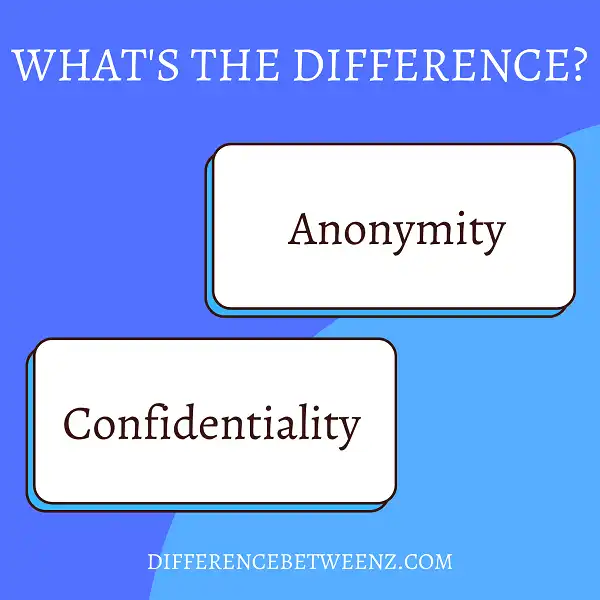Anonymity and confidentiality are often words used interchangeably, but there is a vast difference between the two concepts. Anonymity refers to when an individual’s identity is hidden from the public, while confidentiality requires that sensitive information be kept secure and not shared with unauthorized persons. In this increasingly digital world, understanding the nuances between these terms has become all-important as companies and organizations alike look to protect data privacy without jeopardizing customer relations or service delivery. Read on to learn more about how anonymity and confidentiality differ – and why they both matter in today’s environment!
What is Anonymity?
Anonymity is a situation in which someone’s identity or whereabouts remain unknown; it allows people to act without being identified or tracked. Anonymity can be beneficial when it comes to protecting a person’s identity or security, especially in highly sensitive situations such as political activism or whistleblowing activities.
Anonymity also serves other purposes, such as allowing people to express themselves freely without the threat of repercussions. However, anonymity can also be used for malicious purposes such as cyberbullying and fraud. Anonymity is best handled responsibly and with caution to protect the privacy of individuals.
What is Confidentiality?
Confidentiality refers to a scenario where information about individuals or groups are kept confidential and not shared to the public. Confidentiality can come into play in numerous contexts such as business and personal relationships.
- Confirming that information is kept confidential, encourages people to trust those with the sensitive data more, as they know their personal lives, activities, and interests are safeguarded from unwanted intrusion.
- Businesses that focus on ensuring confidentiality help build trust with their customers who on the other hand will be more likely to invest in the company’s products, and services or divulge personal data for marketing purposes.
- Confidentiality also creates respect between employers and employees as confidential facts like wages or performance ratings are entrusted by the employer and not shared even among co-workers or outsiders. Confidentiality is an important factor that affects everyone’s life, whether at home or work.
Difference between Anonymity and Confidentiality
Anonymity and confidentiality are two concepts that share some similarities but ultimately have distinct meanings.
- Anonymity is the state of not being identified as an individual, while confidentiality is the state of restricting information from certain individuals so that its contents are only seen by those who are authorized.
- Anonymous activity can be helpful for a variety of reasons; it allows people to speak freely without the fear of their identity being known, which could be quite beneficial in certain circumstances.
- For example, anonymous survey results can allow for more honest feedback about a new product or service without fear of repercussions.
- On the other hand, confidentiality is meant to protect data and information from unauthorized access; this could include protecting personal data like passwords or financial records.
An important distinction between anonymity and confidentiality is that while anonymity covers individual identity, confidentiality protects much more than just identity – it is used to secure sensitive information in any environment.
Conclusion
The main difference between anonymity and confidentiality is that anonymity is the state of being unidentified or unknown while confidentiality is the state of keeping something secret. Anonymity protects people from being divulged information about them that could be used to discriminate against them whereas confidentiality allows people to feel safe disclosing personal information without fear of it being distributed without their consent. There are pros and cons to both anonymity and confidentiality, but ultimately it comes down to what makes the person most comfortable.


